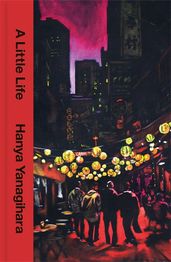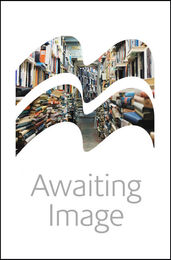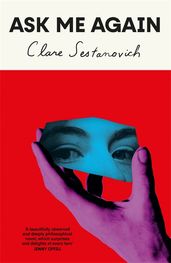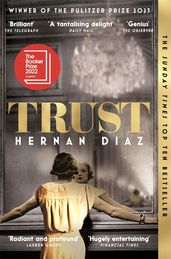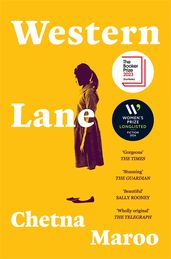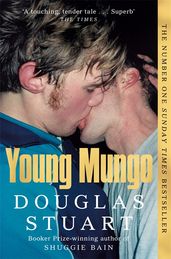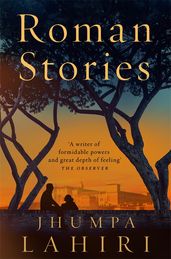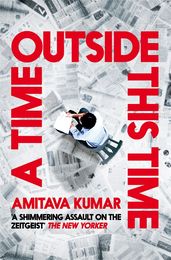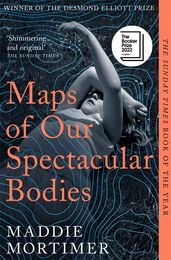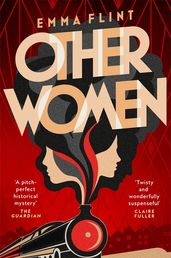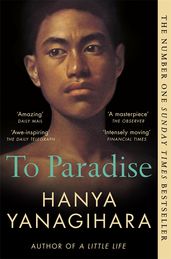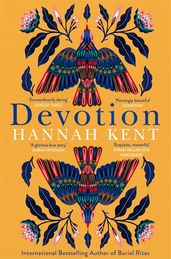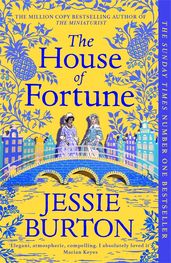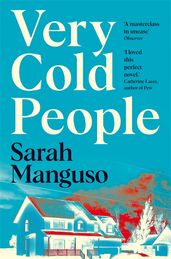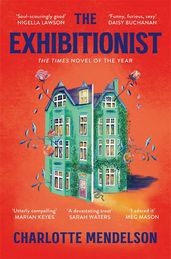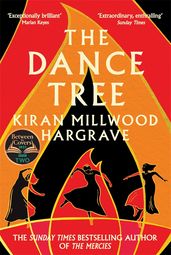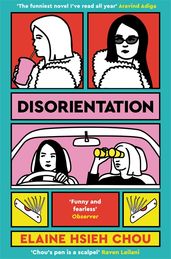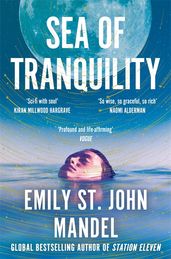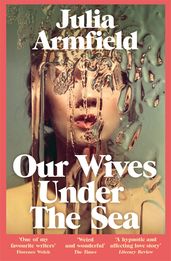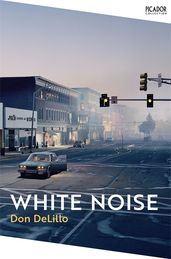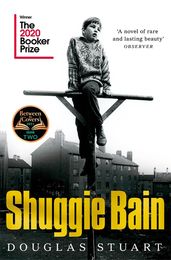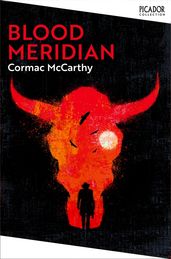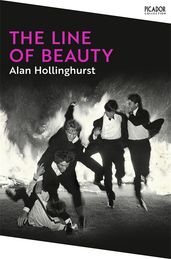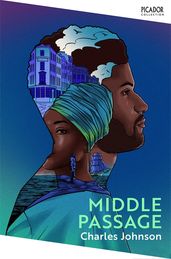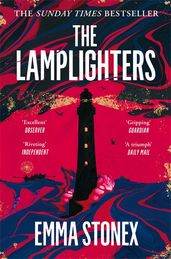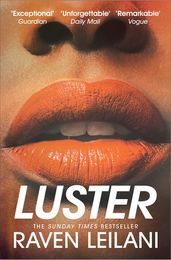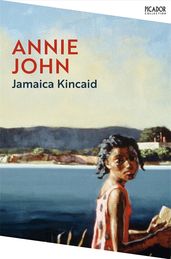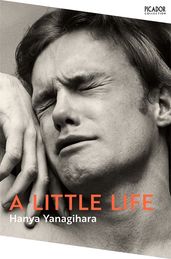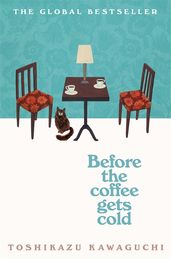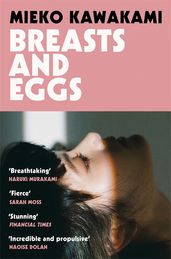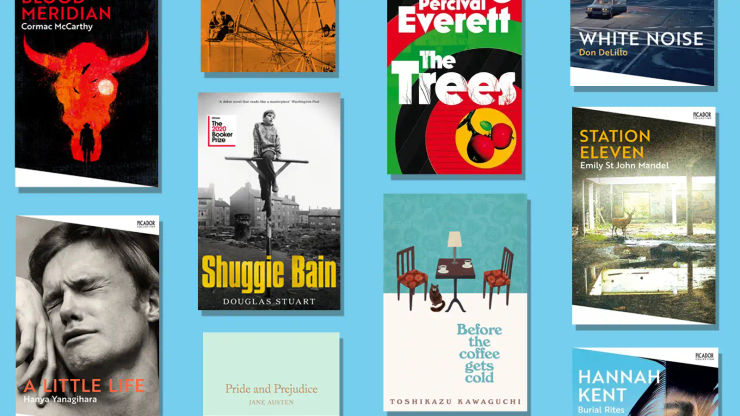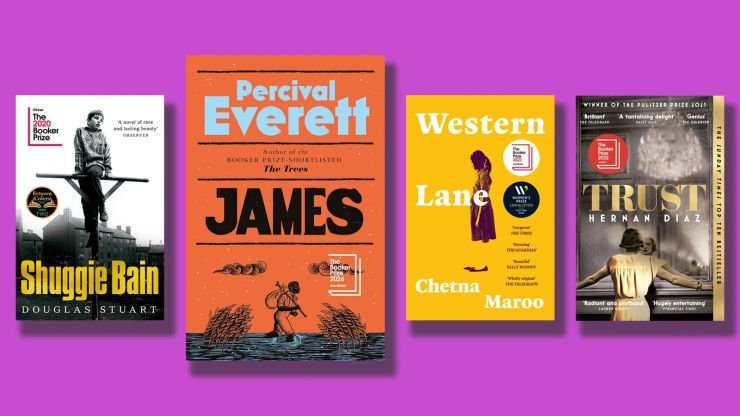The best literary fiction books to read right now
Here we share the most exciting new literary fiction and the best literary fiction of all time.

Here, we look forward to great new literary fiction coming in 2026, round up some of the most exciting new literary fiction of 2025, and recommend some of the best literary fiction of all time.
For even more inspiration, don't miss our edit of the best fiction books.
The best new literary fiction coming in 2026
Almost Life
by Kiran Millwood Hargrave
Spanning across cities and decades, this is a story of the lives we almost live and the choices we don't make. Paris, 1978. Erica is a student, relishing her first summer abroad before beginning university at home in England. Laure is studying for her Ph.D. at the Sorbonne, drinking and smoking far too much, and sleeping with a married woman. When they meet on the steps of the Sacré-Cœur, Erica and Laure form an undeniable connection that will determine the course of their lives – almost.
The Palm House
by Gwendoline Riley
A novel of enduring friendships and small mercies, The Palm House offers us Gwendoline Riley’s trademark keen observation and wit. Laura Miller and Edmund Putnam have been friends for a long time, with evenings spent huddled in an old pub by the Thames. But Putnam is becoming despondent. His dad has died. The magazine he has dedicated his life to has been taken over by an insufferable new editor. And Laura has problems too. A difficult mother. A tricky past. But now, she must dedicate herself to bringing Putman back.
Sisters in Yellow
by Mieko Kawakami
When fifteen-year-old Hana meets Kimiko, she sees her as a bright light in her dark, unstable world. Together they set up Lemon, a bar that becomes a haven: a job, friends, the promise of money and security. But in the narrow alleys of Sangenjaya, nothing is as it seems. Soon all of Hana’s hope, her optimism, and her drive, will be tested to the limit . . .
The Irish Goodbye
by Heather Aimee O'Neill
The three Ryan sisters are all together at their family's Long Island house for the first time in years. Each brings with them a secret. Cait still feels guilty for her role in a boat accident two decades earlier, an accident that drove their brother to suicide. Alice's career, and marriage, are under threat. And Maggie is finally bringing the woman she loves home to meet her devoutly Catholic mother. As they prepare for Thanksgiving dinner, old tensions boil over and new truths surface.
The News from Dublin
by Colm Tóibín
A beautiful collection of short stories from the bestselling author of Brooklyn and Long Island. A woman in Galway hears of the death of her son in the First World War. An Irishman seeks anonymity in Barcelona, haunted by crimes he has committed. A man goes to Dublin from Enniscorthy to implore the Minister for Health for a special favour. A young woman is pregnant during the Spanish Civil War. An undocumented worker finds himself living an illegal life and must leave San Francisco, and his child, after thirty years in America. These are the days and nights of those living far from home: lives of great longing, at a great distance from past lives and past selves.
The Hill in the Dark Grove
by Liam Higginson
Exquisite writing and an increasing sense of unease combine to create a sinister, chilling story, based on Welsh folklore. When Carwyn discovers a buried prehistoric ruin in one of the fields on his land, his curiosity quickly descends into obsession. As the harsh winter closes in, his wife, Rhian, finds herself alone with her increasingly peculiar husband, and the mountains, and the looming megalithic stones.
A Private Man
by Stephanie Sy-Quia
Rome, 1953. David is young, handsome, charismatic and sworn to celibacy. He is freshly ordained, and about to return to England to begin life as a priest. Devotion to God is all he’s ever known. In London, Margaret is entangled in an impossible love affair. Committed to living on her own terms without sacrificing her faith, she becomes drawn to a women’s movement challenging the archaic rules of the Church. When their lives are thrown together at a Catholic college in a quiet village, an undeniable connection forms between them. And so begins a story of forbidden love, sacrifice and secrets, with consequences that will reverberate across the generations.
Holy Boy
by Lee Heejoo
More than a little unhinged, Holy Boy is an exhilarating descent into the dark side of devotion. Yosep is a K-pop idol with millions of adoring fans. But for four of them, a poster on the wall just won't cut it. They have a plan – a perfect, foolproof plan – to get their idol all to themselves. Kidnapping Yosep seemed like the ultimate act of love. But inside a secluded mansion, plagued by paranoia and with their grip on reality slowly loosening, the women use increasingly disturbing strategies to keep Yosep in their possession. As their angel's halo slips and their perfect plan unravels, the women must fight not only to keep him, but to keep their secret buried – at all costs.
The best literary fiction of 2025
A Little Life
by Hanya Yanagihara
2025 marks ten years since the publication of Hanya Yanagihara's A Little Life. This heart-wrenching epic following four friends in New York, which centres around the brilliant and damaged Jude, is an unforgettable exploration of how trauma shapes a life, and the relentless search for grace. This special anniversary edition, featuring exclusive artwork from acclaimed artists RF. Alvarez and Linus Borgo, and an insightful Q&A with the author, is the perfect opportunity to return to this modern classic – or to finally confront its power for the first time.
Rooms for Vanishing
by Stuart Nadler
In this sweeping novel, the events of World War Two shatter the Alterman family, scattering them across multiple continents and fractured possibilities. Stuart Nadler creates a prismatic narrative: each family member lives an isolated future, yet all remain bound by a shared, traumatic past. The story moves with a restless intelligence between Vienna, Montreal, and New York, exploring how grief reshapes reality and how the ghosts of what might have been haunt the lives we lead. This is a profound and moving study of loss, memory, and the human capacity for hope.
Good and Evil and Other Stories
by Samanta Schweblin
This explosive collection from Samanta Schweblin is a masterclass in unnerving, tightly-wound storytelling. Each tale is a perfectly constructed snare, luring you in with a deceptively simple premise before snapping shut. Whether it's a mother surfacing from a lake after seeing something awful yet alluring, or a father haunted by a moment of distraction, Schweblin’s work explores the sinister undercurrents of everyday life. With her precise and uncanny prose, she confronts the unspoken bonds of family and the monsters that lurk in the shadows – and within ourselves.
A Long Winter
by Colm Tóibín
When a mother disappears without a trace into the snowy Pyrenees, her husband and son are left to fend for themselves in a harsh and unforgiving landscape. In this delicate and psychologically intricate novella, Colm Tóibín charts the slow disintegration of a family, but also the unexpected possibilities that can emerge from absence. As Miquel grapples with his father’s silence and the reality of his mother’s departure, the arrival of an orphaned boy offers the promise of a different kind of life. This is a powerful, masterful exploration of betrayal, silence, and the quiet search for love.
James
by Percival Everett
Shortlisted for the Booker Prize 2024 and winner of the Pulitzer Prize for Fiction 2025 and Fiction Book of the Year at The British Book Awards.
After escaping his slave owner’s plantation on The Mississippi River in 1861, James holes up on nearby Jackson Island, trying to formulate a plan to ensure his and his family’s freedom. Meeting Huck, a man running from his own troubled past, the pair start a treacherous journey up the river in the hope of salvation. A masterful retelling of Mark Twain’s The Adventures of Huckleberry Finn that brings Jim’s story into the spotlight for the first time, Percival Everett’s James is one of the year’s must-read novels.
Thirst Trap

Maggie, Harley and Róise are friends on the brink: of triumph, catastrophe, or maybe just finally growing up. Their crumbling Belfast house share has been witness to their roaring twenties, but now fault-lines are beginning to show. The three girls are still grieving the tragic death of their friend, Lydia, whose room remains untouched. Their last big fight hangs heavy over their heads, unspoken since the accident. And now they are all beginning to unravel.
Among Friends
by Hal Ebbott
A shocking act of violence brings long-held resentments and rivalries to the surface in Hal Ebbott's elegant debut. Amos and Emerson have had an unbreakable friendship for over thirty years. Their wives are close. Their daughters grew up together. They're enjoying a wealthy middle age. But now their worlds have been shattered and each must choose whom and what they love most.
The Sunshine Man
by Emma Stonex
In January 1989, Birdie learns that Jimmy Maguire, the man who killed her sister, has been released, and leaves immediately for London with a plan and a gun. This new novel from Emma Stonex, author of The Sunday Times bestseller The Lamplighters, is a gripping cat-and-mouse chase that delves into the psychological depths of grief and retribution, blurring the line between victim and perpetrator.
Long Island
by Colm Tóibín
One of the most anticipated titles of the year, Long Island is the sequel to Colm Tóibín’s beloved novel, Brooklyn. The now-married Eilis Fiorello, Tony and their two children live a safe, albeit staid, life on Long Island until a man arrives at their doorstep and everything Eilis knows is brought crashing down around her. Forced to confront the reality of her life and marriage, Eilis is drawn back to her native Ireland and the people she left behind decades ago. A powerful meditation on the nature of home, family and memory, Long Island is a masterpiece whether you have already read Brooklyn, or not.
Ripeness
by Sarah Moss
The 1960s. Teenager Edith has been sent by her mother to rural Italy. She must find her sister Lydia, a ballet dancer, help as she gives birth, then make a phone call which will seal all their fates. Decades later, another phone call changes the course of Edith's best friend Maebh's life, as an American man claiming to be her brother asks to meet. This new novel from bestselling author Sarah Moss explores familial love, migration and new beginnings.
Our Evenings
by Alan Hollinghurst
One of the most revered novelists working today, a new novel from Alan Hollinghurst is a literary event not to be missed. In Our Evenings, Hollinghurst introduces Dave Win, who as a teenager is awarded a scholarship to a prestigious local boarding school. While staying with the sponsors who have given him this opportunity, Win is plunged into a privileged world he has never experienced and meets the family's cruel and jealous son, Giles. Following the two boys over the decades that follow their first meeting, Our Evenings is an intimate story of race, class, sexuality, love, and violence, written with Hollinghurst’s inimitable razor-sharp wit.
The Paris Express
by Emma Donoghue
Autumn, 1895. An anarchist boards the ill-fated Granville to Paris express train, determined to make her mark on history. Aboard the train are others from across the globe: the railway crew who have built a life together away from their wives, a little boy travelling alone for the first time, an artist far from home, a wealthy statesman and his invalid wife, and a young woman with a secret. This historical thriller from the author of Room is one you won't be able to put down.
Fair Play
by Louise Hegarty
Two competing stories – and genres – combine to peel back the nature of grief in this startlingly original debut novel. When Benjamin dies at his own birthday party, Abigail's world is quite literally split in two. On one side, she attempts to grasp the reality of her brother's death, while on the other everything is not quite what it seems: an eminent detective has arrived to track down the murderer, and there's suddenly a butler, a gardener and a locked-room mystery where everyone is a suspect.
Days of Light
by Megan Hunter
Days of Light is the new novel from the author of The End We Start From. It follows Ivy, a young woman whose life is changed forever when her brother Joseph drowns near their family home. At his funeral, she meets the man she will marry and the woman she will love, setting the course for a life marked by unconventional choices. Spanning from 1938, through World War II, and into the twenty-first century, the novel traces Ivy's journey in a world shaped by art, love, and the search for meaning.
Ask Me Again
by Clare Sestanovich
Eva is sixteen and living in Brooklyn when she meets super-rich Upper East-Sider Jamie in the hospital her grandmother is dying in. So begins this coming-of-age debut novel from short story writer Clare Sestanovich. As Eva goes to university, and falls in and out of love, Jamie spirals away from her into a world of radical politics and religion. But they're both looking for the same thing: a way to define themselves and their beliefs in a divided and unjust world.
The Boy from the Sea
by Garrett Carr
Garrett Carr's debut takes us to Ireland's west coat in the 1970s, where a baby is found alone on the beach. Adopted by fisherman Ambrose Bonnar, the boy captivates Bonnar's family and the close-knit town immediately, through love, worry and envy. Set over twenty years, this is a tale of ordinary lives made extraordinary, and a quiet community attempting to adapt in a fast-changing world.
Salutation Road
by Salma Ibrahim
Living in south London, doing her best to support her family after being abandoned by her father as a child, twenty-three-year-old Sirad Ali is pretty sure this is not the life she really wants. Then, on her commute to work, she's suddenly transported to an alternate life in present-day Mogadishu, and encounters Ubah, the woman she could have been had her parents not fled to London during the Somali Civil War. On her equally sudden return to Greenwich, Sirad must find a way to continue with her normal life. But then Ubah mysteriously appears in London.
Martyr!
by Kaveh Akbar
Cyrus Shams has been grappling with his mother's death ever since her plane was shot down when he was just a baby. Now, newly sober, he embarks on a journey to uncover her true identity and the mysteries attached to her life, triggered by an encounter with a dying artist. As Cyrus pieces together clippings from his mother's life, he is faced with a shocking revelation that shatters his beliefs. Electrifying, funny, wholly original, and profound, Martyr! heralds the arrival of a blazing and essential new voice in contemporary fiction.
The best literary fiction of all time
Small Rain
by Garth Greenwell
Confined to a hospital bed after being rushed to the ICU in excruciating pain, a poet finds his life turned upside down in an instant. As he navigates the complex and unjust American healthcare system and experiences what it feels like to stare death in the face, he searches for answers about what is happening to a body he has taken for granted for decades. From the author of What Belongs to You, Garth Greenwell, Small Rain is a profound and vivid novel about mortality, beauty, art, love and ultimately, the fragility of the American dream.
Juice
by Tim Winton
Alone, exhausted, and scarred by what they’ve seen on their travels, a man and child search for safety in a sunburned and stony desert. Chancing upon an abandoned mine, the man knows that this desolate place is their best bet for shelter, even though they have no idea who or what lurks in the mine’s depths. Set in an apocalyptic dystopian future, in Juice Tim Winton asks: how far will humans go to survive when the world has been turned upside down?
Rosarita
by Anita Desai
Arriving in San Miguel, Mexico, a destination chosen to help her improve her Spanish, from her native India, young student Bonita is anonymous and acutely aware of the possibility of adventure stretching out ahead of her. But, as she sits in a park, silently watching this unfamiliar world go by, she meets a stranger who swears she knew Bonita’s mother as an art student decades before. This woman’s revelation leads Bonita on a journey to learn the truth of who her mother once was; a journey that will change their relationship for good.
Trust
by Hernan Diaz
Winner of the Pulitzer Prize 2023
This literary puzzle about money, power, and intimacy challenges the myths shrouding wealth, and the fictions that often pass for history. Even through the roar and effervescence of the 1920s, everyone in New York has heard of Benjamin and Helen Rask. He is a legendary Wall Street tycoon; she is the daughter of eccentric aristocrats. Together, they have risen to the very top of a world of seemingly endless wealth — all as a decade of excess and speculation draws to an end. But at what cost have they acquired their immense fortune?
Everything's Fine
by Cecilia Rabess
When Jess first meets Josh at their Ivy League college she dislikes him immediately: an entitled guy in chinos, ready to take over the world, unable to accept that life might be easier for him because he's white, while Jess is almost always the only Black woman in their class. But as a tempestuous friendship turns into an electrifying romance that shocks them both, Jess begins to question who she is and what she’s really willing to compromise. Can people really ever just agree to disagree? And more to the point, should they? This hugely funny and deeply moving love story offers no easy answers.
Western Lane
by Chetna Maroo
Shortlisted for the Booker Prize 2023
Exploring themes of grief and sisterhood, this debut coming-of-age story packs a lot of emotion into just 176 pages. Eleven-year-old Gopi has been playing squash for as long as she can remember. When her mother dies, her father enlists her in a brutal training regimen. Soon, the game has become her entire world, causing a rift between Gopi and her sisters. But on the court, governed by the rhythms of the sport, she feels alive. This novel beautifully captures the ordinary and annihilates it with beauty as we follow a young athlete's struggle to transcend herself.
Young Mungo
by Douglas Stuart
Mungo is a Protestant and James is a Catholic, both inhabiting the hyper-masculine world of two Glasgow housing estates, split violently along sectarian lines. The two should be enemies but, finding sanctuary in the doocot James has created for his racing pigeons, they grow closer and closer. Dreaming of escape and under constant threat of discovery, Mungo and James attempt to navigate a dangerous and uncertain future together.
Roman Stories
by Jhumpa Lahiri
Inspired by the city she’s lived in for the past two decades, Jhumpa Lahiri's new work of fiction turns her gaze towards those who call Rome home. Weaving each character’s story around a set of steps they encounter daily, and examining how the city is constantly evolving and changing, Lahiri masterfully illuminates the joys and tragedies of daily life. From a man mourning the person he once was to a couple coming to terms with loss and a family trying to make a new city home, the rich characters she has created will stay with you long after you finish reading.
Open Throat
by Henry Hoke
A queer mountain lion lives in the drought-devastated land under the Hollywood sign. The lion spends their days protecting a nearby homeless encampment, observing hikers complain about their trauma and grappling with the complexities of their own identity. When a man-made fire engulfs the encampment, the lion is forced from the hills down into the city. As they confront a carousel of temptations and threats, the lion takes us on a tour that spans the cruel inequalities of Los Angeles. Feral and vulnerable, profound and playful, Open Throat is a marvel of storytelling that brings the mythic to life.
A Time Outside This Time
by Amitava Kumar
A writer called Satya visits a high-profile artists' retreat, and soon finds that the pressures of modern life are hard to shed: the US president pours out vitriol, a virus threatens the world, and the relentless news cycle only makes things worse. Satya realises these pressures can inspire him to write, and he begins to channel presidential tweets, memories from an Indian childhood, and his own experiences as an immigrant into his new novel. A fascinating exploration of memory in a post-truth world, Amitava Kumar's A Time Outside This Time is a beautiful and necessary novel.
Maps of our Spectacular Bodies
by Maddie Mortimer
Something is moving in Lia's body, learning her life with gleeful malevolence and spreading through the rungs of her larynx, the bones of her trachea. When a shock diagnosis forever changes Lia's world, boundaries in her life begin to break down as buried secrets emerge. A voice prowling inside of her takes hold of her story, merging the landscape within her body with the one outside. A coming-of-age at the end of life, Maddie Mortimer's compelling debut novel is both heart-breaking and darkly funny, combining wild lyricism with celebrations of the desire, forgiveness and darkness in our bodies.
‘Compelling and uplifting . . . undeniably impressive: Mortimer is clearly a talent to watch’
— The Telegraph on Maps of our Spectacular Bodies
Other Women
by Emma Flint
Based on a real case from the 1920s, Other Women tells the story of Beatrice, one of the thousands of nameless and invisible unmarried women trying to make lives for themselves after the First World War, and Kate, the wife of the man Beatrice has fallen in love with. When fantasy and obsession turns to murder, two women who should never have met are connected forever.
To Paradise
by Hanya Yanagihara
This amazing new novel from the author of A Little Life begins in the nineteenth century, and spans stories of love, family, loss and promised utopia over the following three centuries. In 1893, New York is part of the Free States, and a gentle young member of a privileged family falls for a charismatic and impoverished music teacher. In 1993 Manhattan is being swept by the AIDS epidemic, and a young Hawaiian man with a wealthy older partner must hide his difficult family background. And in 2093 in a world where plague and totalitarian rule is rife, a young woman tries to solve the mystery of her husband's disappearances.
Anam
by André Dao
Anam takes us on a poignant journey from 1930s Hanoi to Saigon, Paris, Melbourne, and Cambridge, exploring memory, inheritance, colonialism, and belonging. The narrator, born into a Vietnamese family in Melbourne, grapples with his grandfather's haunting tale of imprisonment in Chi Hoa prison under the Communist government. Straddling his Australian upbringing and Vietnamese heritage, he faces the impact of his grandfather's death and the birth of his daughter on his own life's trajectory. André Dao artfully weaves fiction and essay, theory and personal experience, revealing forgotten aspects of history and family archives.
Devotion
by Hannah Kent
It's 1836 in Prussia, and teenage Hanne is finding the domestic world of womanhood increasingly oppressive. She longs to be out in nature, and finds little companionship with the local girls. Until, that is, she meets kindred spirit Thea. Hanne is from a family of Old Lutherans, whose worship is suppressed and secret. Safe passage to Australia offers liberty from these restrictions. But a long and harsh journey lies ahead, one which will put the girls' close bond to a terrible test.
The House of Fortune
by Jessie Burton
A glorious, sweeping story of fate and ambition, The House of Fortune is the sequel to Jessie Burton’s bestseller The Miniaturist. Amsterdam, 1705. Thea Brandt is about to turn eighteen and she can't wait to become an adult. Walter, her true love, awaits Thea at the city's theatre. But at home on the Herengracht things are tense. Her father Otto and Aunt Nella bicker incessantly and are selling furniture so the family can eat. And, on her birthday, the day her mother Marin died, secrets from Thea's past threaten to eclipse the present. Nella is feeling a prickling sensation in her neck, which recalls the miniaturist who toyed with her life eighteen years ago.
Very Cold People
by Sarah Manguso
Growing up on the edge of a wealthy but culturally threadbare New England town, Ruth goes under the radar. Nobody pays her attention, but she watches everything – recording with precision the painful unfurling of her youth and enduring difficult and damaging parenting from the mocking, undermining adults in her life. But as the adults of the book fail to grow up, Ruth gracefully arcs towards maturity in a story that grapples with many of life's ugly truths.
Concerning My Daughter
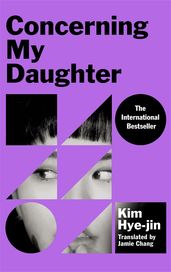
A mother lets her thirty-something daughter – Green – move into her apartment, with dreams that she will find a good job and a good husband to start a family with. But Green arrives with her girlfriend Lane, and her mother finds it hard to be civil. She is similarly unaccepting of her daughter's entanglement in a case of unfair dismissal from her university employers, involving gay colleagues. Yet Green's mother finds that she has her own moral battle to fight, defending the right to care of a dementia patient who has chosen an unconventional life and has no family. Translated from Korean by Jamie Chang, this is a universal tale about ageing, prejudice and love.
‘An admirably nuanced portrait of prejudice . . . one that boldly takes on the daunting task of humanizing someone whose prejudice has made her cruel.’
— The New York Times on Concerning My Daughter
The Passenger
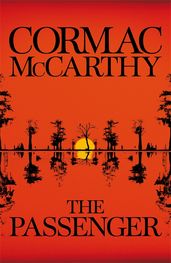
A sunken jet. Nine passengers. A missing body. The Passenger is the story of a salvage diver, haunted by loss, afraid of the watery deep, pursued for a conspiracy beyond his understanding, and longing for a death he cannot reconcile with God. The first of two novels published in 2022 by literary great Cormac McCarthy, The Passenger is followed by Stella Maris – both are too good to be missed.
The Exhibitionist
by Charlotte Mendelson
Meet the Hanrahan family, gathering for a momentous weekend as famous artist and notorious egoist Ray Hanrahan prepares for a new exhibition of his art – the first in many decades – and one he is sure will burnish his reputation for good. His three children will be there: beautiful Leah, sensitive Patrick, and insecure Jess, the youngest, who has a momentous decision to make..And what of Lucia, Ray’s steadfast and selfless wife? She is an artist, too, but has always had to put her roles as wife and mother first. But Lucia is hiding secrets of her own, and as the weekend unfolds and the exhibition approaches, she must finally make a choice.
‘It takes the most ferocious intelligence, skill and a deep reservoir of sadness to write a novel as funny as this. I adored it.’
— Meg Mason on The Exhibitionist
The Dance Tree
by Kiran Millwood Hargrave
It's 1518 in Strasbourg, and in the intense summer heat a solitary woman starts to dance in the main square. She dances for days without rest, and is joined by hundreds of other women. The city authorities declare a state of emergency, and bring in musicians to play the devil out of the dancing women. Meanwhile pregnant Lisbet, who lives at the edge of the city, is tending to the family's bees. The dancing plague intensifies, as Lisbet is drawn into a net of secret passions and deceptions. Inspired by true events, this is a compelling story of superstition, transformative change and women pushed to their limits.
Disorientation
by Elaine Hsieh Chou
This raucous and heartwarming satire asks – who gets to tell our stories? And can we change the narrative if we get to write it ourselves? PhD student Ingrid Yang can't wait to finish her dissertation on major poet Xiao-Wen Chou so she never has to read about ‘Chinese-y’ things again. Then she finds an enigmatic note in the Chou archive, which leads to an explosive discovery and a roller coaster of misadventures. Ingrid's gentle fiancé doesn't look quite the same in the aftermath, as she confronts her troubled relationship with white men and their institutions and, more importantly, herself . . .
Sea of Tranquillity
by Emily St John Mandel
It's 1912, and eighteen-year-old Edwin St. Andrew is on a journey across the Atlantic, having been exiled from society in England. Arriving in British Columbia, he enters a forest, mesmerised by the Canadian wilderness. All is silent, before the notes of a violin reverberate through the air. Two centuries later, and acclaimed author Olive Llewelyn is travelling over the earth, on a break from her home in the second moon colony. At the heart of her bestselling novel, a man plays a violin for spare change in the corridor of an airship terminal, as a forest rises around him. This compelling novel immerses the reader in parallel worlds, and multiple possibilities.
Our Wives Under The Sea
by Julia Armfield
Leah is back from a perilous and troubling deep sea mission, and Miri is delighted to have her wife home. But Leah has carried the undersea trauma into the couple's domestic life, and it is causing a rupture in their relationship. The debut novel from the author of acclaimed short story collection salt slow, Our Wives Under The Sea is a rich meditation on love, loss and the mysteries of the ocean.
White Noise
by Don DeLillo
Possibly DeLillo’s funniest book, White Noise introduced his work to a wider audience than ever before and established his reputation as a master of postmodern fiction. Jack Gladney is the creator and chairman of Hitler studies at the College-on-the-Hill. The novel is a story about his absurd life; a life that is going well enough, until a chemical spill from a rail car releases an 'Airborne Toxic Event' and Jack is forced to confront his biggest fear – his own mortality. DeLillo's bestselling story effortlessly combines social satire and metaphysical dilemma, exposing our rampant consumerism, media saturation and novelty intellectualism.
Shuggie Bain
by Douglas Stuart
Douglas Stuart’s blistering, Booker Prize-winning debut is a heartbreaking story that lays bare the ruthlessness of poverty and the limits of love. Set in a poverty-stricken Glasgow in the early 1980s, Agnes Bain has always dreamed of greater things. But when her husband abandons her she finds herself trapped in a decimated mining town and descends deeper and deeper into drink. Her son Shuggie tries to help her long after her other children have fled, but he too must abandon her to save himself. Shuggie is different and he is picked on by the local children and condemned by adults as 'no’ right’. But he believes that if he tries his hardest he can be like other boys and escape this hopeless place.
Blood Meridian
by Cormac McCarthy
Written in 1985, Blood Meridian is set in the anarchic world opened up by America’s westward expansion. Through the hostile landscape of the Texas–Mexico border wanders the Kid, a fourteen year-old Tennessean who is quickly swept up in the relentless tide of blood. But the apparent chaos is not without its order: while Americans hunt Indians – collecting scalps as their bloody trophies – they too are stalked as prey. Powerful, mesmerizing and savagely beautiful, Blood Meridian is considered one of the most important works in American fiction of the last century.
The Line of Beauty
by Alan Hollinghurst
The Line of Beauty is Alan Hollinghurst's Booker Prize-winning masterpiece. In the summer of 1983, twenty-year-old Nick Guest moves into an attic room in the Notting Hill home of the wealthy Feddens: Gerald, an ambitious Tory MP, his wife Rachel and their children Toby and Catherine. Innocent of politics and money, Nick is swept up into the Feddens’ world and an era of endless possibility, all the while pursuing his own private obsession with beauty. This is a novel that defines a decade, exploring with peerless style a young man's collision with his own desires, and with a world he can never truly belong to.
Middle Passage
by Charles Johnson
Rutherford Calhoun, a puckish rogue and newly freed slave, spends his days around the docks of New Orleans, dodging debt collectors, gangsters, and a woman who seeks to marry him. When the heat from his pursuers overwhelms him, he cons his way onto the next ship leaving the dock: the Republic. Upon boarding, he discovers that he is on an illegal slave ship, looking to capture members of the legendary Allmuseri tribe. The Captain also has a secondary objective: securing a mysterious cargo that possesses an otherworldly power. A blend of allegory, black comedy, naval adventure and supernatural horror, Middle Passage is a true modern classic.
The Lamplighters
by Emma Stonex
Cornwall, 1972. Three keepers vanish from a remote lighthouse, miles from the shore. The entrance door is locked from the inside. The clocks have stopped. The Principal Keeper’s weather log describes a mighty storm, but the skies have been clear all week. Twenty years later, the women they left behind are still struggling to move on, when they are given the chance to tell their side of the story. Inspired by true events, this enthralling and suspenseful mystery is a beautifully written exploration of love and grief, perception and reality.
A House for Mr Biswas
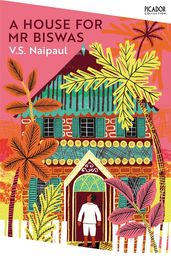
Written in 1961 and set in post-colonial Trinidad, this is the story of Mr Biswas, a man born into misfortune, and his quest to find a worthy home of his own. A House for Mr Biswas is a multi-faceted read that is all-at-once satisfying, lyrical and humorous.
Luster
by Raven Leilani
Raven Leilani is a funny and original new voice in literary fiction. Her razor-sharp yet surprisingly tender debut is an essential novel about what it means to be young now. Edie is messing up her life, and no one seems to care. Then she meets Eric, who is white, middle-aged and comes with a wife who has sort-of-agreed to an open marriage and an adopted black daughter who doesn’t have a single person in her life who can show her how to do her hair. And as if life wasn’t hard enough, Edie finds herself falling head-first into Eric’s family.
‘In this cutting, hot-blooded book, the entanglements that unfold are as complicated as they are heartbreaking.’
— New Statesman on Luster
Annie John
by Jamaica Kincaid
Much loved only child Annie has always had a tranquil life. She and her beautiful mother are intertwined and inseparable. But when Annie turns twelve, her life shifts. She questions authority, makes rebel friends and wonders about the culture assumptions of her island world. And the unconditional love between Annie and her mother takes an adversarial turn. A coming of age classic, narrated with wonderfully candid complexity.
A Little Life
by Hanya Yanagihara
Shortlisted for the Booker Prize and celebrated as ‘the great gay novel’, Hanya Yanagihara’s immensely powerful story of brotherly love and the limits of human endurance has had a visceral impact on many a reader. Willem, Jude, Malcolm and JB meet at college in Massachusetts and form a firm friendship, moving to New York upon graduation. Over the years their friendships deepen and darken as they celebrate successes and face failures, but their greatest challenge is Jude himself – an increasingly broken man scarred by an unspeakable childhood. This is a book that will stay with you long after the last page.
Before the Coffee Gets Cold
by Toshikazu Kawaguchi
First released in Japan in 2015, this bestseller has since been translated for English audiences. The story takes place in a small basement café in Japan, home to a very special urban legend: visitors can travel back in time. There are strict rules, however; you can only travel back to speak to people who have visited the café itself, you cannot leave your seat while in the past, nothing you do will change the present, and you must return before your coffee gets cold. Each character comes to the café with a new reason to time travel. As many of the patrons discover, you can’t change the present, but you can change yourself.
Breasts and Eggs
by Mieko Kawakami
This literary debut, which Haruki Murakami called ‘breathtaking’, is a must-read for fans of contemporary literary fiction. Mieko Kawakami paints a radical picture of contemporary working-class womanhood in Japan as she recounts the heartbreaking stories of three women who must survive in a society where the odds are stacked against them.
‘I can never forget the sense of pure astonishment I felt when I first read Mieko Kawakami’s novella Breasts and Eggs . . . breathtaking . . . Mieko Kawakami is always ceaselessly growing and evolving.’
— Haruki Murakami on Breasts and Eggs
Burial Rites
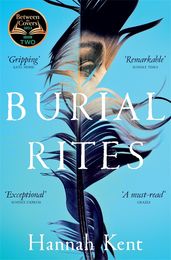
In northern Iceland, 1829, Agnes Magnúsdóttir is condemned to death for her part in the brutal murder of her lover. Agnes is sent to wait out her final months on the farm of district officer Jón Jónsson, his wife and their two daughters. Horrified to have a convicted murderer in their midst, the family avoid contact with Agnes. Only Tóti, the young assistant priest appointed Agnes’s spiritual guardian, is compelled to try to understand her. As the year progresses and the hardships of rural life force the household to work side by side, Agnes’s story begins to emerge and with it the family’s terrible realization that all is not as they had assumed.
For further reading, discover the best debut novels of all time.








